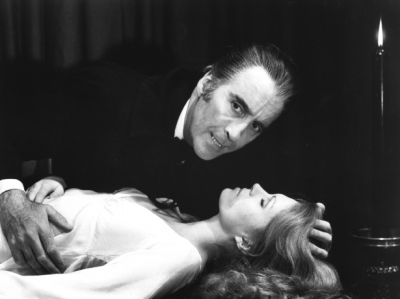Posts Tagged ‘philosophy’
Everything? Really? [part 2]
July 8th, 2012 Posted 6:33 am

Cover, Everything You Need to Know About the Goth Scene
Acker, Kerry. Everything You Need to Know About The Goth Scene. New York: The Rosen Publishing Group, 2000.
Continued from Part 1.
Chapter 2/Gothic Philosophy: Sigh. I think the final thought in Chapter 1 would suffice. Acknowledging both the good and bad of human nature and the world in order to fully appreciate both. Then there is a shift to suggesting that Goths focus on the dark and the bad and place emphasis on suffering, sorrow, fear, and death. While I do picnic in cemeteries [we have one scheduled for July 29th – see our Facebook page for details], I don’t focus on any of those things. I don’t mean to suggest that my experience is shared by everyone, but I do mean to suggest that acknowledging the darker things does not necessarily equate to a focus on them. It’s just so different from the experience of “normal” people that it might look like a focus. I don’t know. I’m still trying to figure out the angle of this book.
Knowing more about the author than “is a freelance writer” would help a lot. Either they [Kerry could be either male or female] are Goth and trying to honestly explain the culture, but are doing it poorly, or they are not Goth and writing a resource book with a poor understanding of the culture. Even still, maybe an editor made a mess of a perfect book. The world may never know.
Dictionary.com defines Philosophy as:
1. the rational investigation of the truths and principles of being, knowledge, or conduct.
2. any of the three branches, namely natural philosophy, moral philosophy, and metaphysical philosophy, that are accepted as composing this study.
3. a system of philosophical doctrine: the philosophy of Spinoza.
4. the critical study of the basic principles and concepts of a particular branch of knowledge, especially with a view to improving or reconstituting them: the philosophy of science.
5. a system of principles for guidance in practical affairs.
6. a philosophical attitude, as one of composure and calm in the presence of troubles or annoyances.
None of those seem appropriate – at all; however, Dictionary.com defines aesthetic as: having a sense of the beautiful; characterized by a love of beauty. BINGO!
The “Who are Goths?” section of this chapter states, “followers of the Goth aesthetic include people of different ages, sensibilites, religions, politics, and careers… Goths are a group of people with broad interests such as history, literature, music, mythology, and fashion.” Good. True. But sadly, the rest of the book attempts to force goths into little boxes in order for it to truly be understood. I’m not sure this is intentional. I suspect the author is attempting to bring light [haha] to the darker aspects and forgets to mention that this isn’t ALL there is. An attraction to darkness can attract people to Goth culture – really, not everyone “gets it,” but we do appreciate the things that non-Goths do as well. This book seems to try to force a separation where one is not necessary and every chapter includes a warning to look for signs for violence and depression.

Christopher Lee as Dracula
A picture of Dracula [not the one I chose because I’m more of a Christopher Lee fan] holds the caption, “Many Goths are fascinated with the mystery of death and the occult,” BUT MANY ARE NOT. I’m sure that reminder would become annoying and overhelming, but it’s so necessary.
Chapter 2/Gothic Lifestyle: An overview of humans in general… A wide range of interests [including music, fashion, other hobbies enjoyed alone or in a group], the opportunity to experiment with sexuality [specifically with gender roles], and interest in different religions [or in no religion, although the focus here is in Paganism and Vampirism, with a note on Christianity].
After reviewing the aspects of the Gothic Lifestyle presented and noting the points made which are 90% pointing out how different Goths are from most of the people in the world, Acker warns us about subscribing to stereotypes.
Perhaps I am just thin-skinned on this topic. I show people the similarities between them and me and then let them notice the differences. One of the girls I work with says all the time, “You’re just a normal person. Why are people so freaked out by you?”
Why indeed.
[more to follow…]
Tags: everything you need to know, fashion, philosophy, religion, vampires, what is goth
Posted in Books

